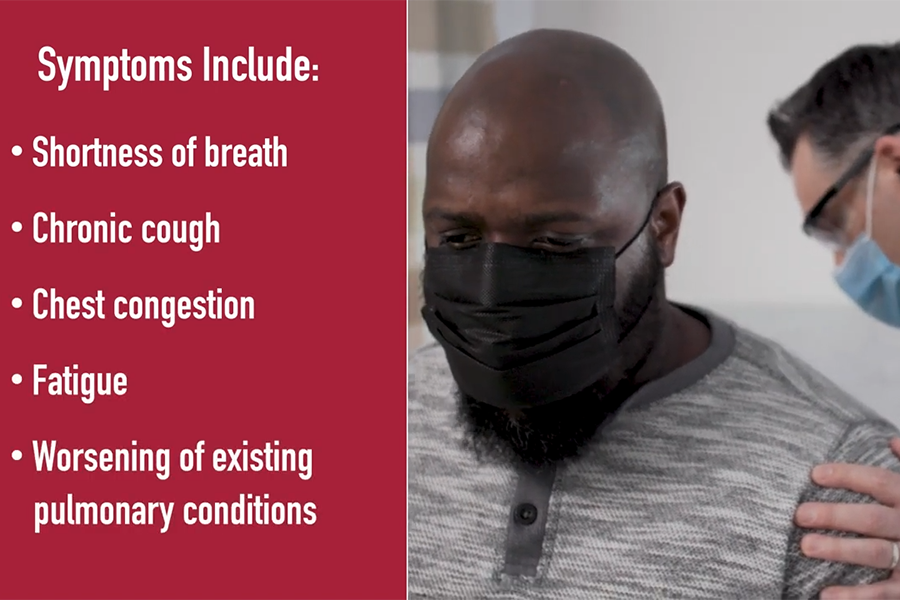COVID-19 symptoms don't always improve in just a few days or weeks. In some cases, people continue to feel unwell long after their coronavirus tests are negative. Called "long-haulers" by doctors, these people experience lingering symptoms that may be as bad or worse than their initial virus symptoms.
Symptoms can even be severe enough that it becomes difficult for long-haulers to return to work or care for their families.
What symptoms do long-haulers experience?
Long-term COVID symptoms vary from person to person but may include:
- Body aches
- Brain fog
- Breathing problems/shortness of breath
- Chest pain
- Confusion
- Cough
- Diarrhea
- Fatigue
- Fever
- Headaches
- Insomnia
- Joint pain
- Loss of taste or smell
- Memory problems
- Nausea
- Numbness
- Rapid heart rate
- Sore throat
COVID-19 can also affect the immune system or damage the heart, lungs, brain and other organs, causing permanent health issues that must be carefully managed by doctors.
Constant fatigue was cited as a problem for more than 97% of long-haulers who logged their symptoms in a COVID Symptom Study app, while 91% struggled with intermittent headaches.1
Why do some people have long-term symptoms from COVID?
It's not clear why some people still feel sick months after they were first diagnosed with the coronavirus. About 10% of people who have COVID-19 become long-haulers, according to British researchers who published an article on post-acute COVID-19 in The BMJ.
Long-haul COVID does not seem to be related to the severity of the initial illness. You're just as likely to develop long-term symptoms whether you had mild or severe symptoms. The number of symptoms you experience when you're first diagnosed may increase your chance of developing long-haul COVID.
The researchers who analyzed the results of the COVID Symptom Study app noticed that patients who had 5 or more coronavirus symptoms initially were more likely to experience long-term COVID issues.
An immune system overreaction is one theory that could explain long-haul COVID. It's also possible that long-haul symptoms might occur if a small amount of the virus remains in the body despite negative tests or the virus triggers inflammation.
How are long-haul symptoms treated?
At the Temple Lung Center, our Post-COVID Recovery Clinic team is dedicated to helping people with long-term COVID-19 symptoms.
